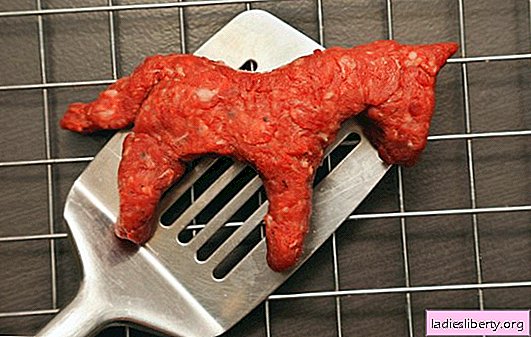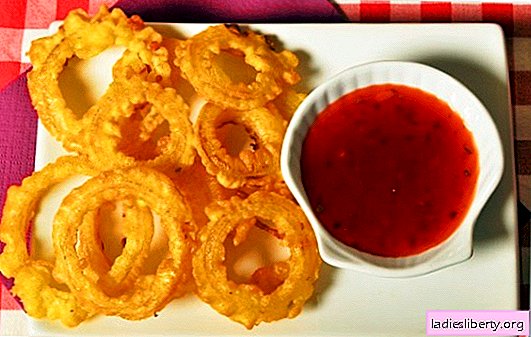
In folk medicine, horse meat is considered a healing product. And not in vain: this dietary meat contains many useful substances. Not only traditional healers, but also doctors often recommend this product to restore health and treat sick people.
The composition and calorie content of horsemeat
Someone like the flavor of horse meat, someone not - this is a matter of habit. Swedes and French, for example, eat this meat raw, generously flavored with hot sauces. In other countries, in order to rid the product of a specific smell, it is either pickled, canned, or added to smoked sausages, mixed with other types of meat products.
Smelling meat brings great benefits to the human body. Horse meat is absorbed by the gastrointestinal tract much faster than dietary beef, despite the large amount of animal protein (25%). And all thanks to a successful, well-balanced amino acid content.
Due to the rate of assimilation (it is eight times higher than the rate of assimilation of beef meat), not fibers do not rot in the stomach, do not upset digestion. Moreover, the choleretic effect possessed by horse meat restores the liver and generally has a beneficial effect on human health.
Another amazing fact. Scientists have found that the fats found in horse meat are a cross between vegetable and animal fat. The total amount of fat is not more than 5%, or even less. Therefore, it is a dietary product that does not cause obesity, is not stored in fat and can be used in weight loss diets.
Horse meat contains many useful substances:
• vitamins A (retinol), E (tocopherol), C (ascorbic acid), group B;
• trace elements iron, potassium, calcium, phosphorus, magnesium, sodium, zinc, manganese, selenium, copper;
• organic acids.
The calorie content of horse meat is very low. One hundred grams of aromatic fillet contains from 130 to 170 calories. Boil or stew horsemeat for a long time, at least three hours. N has very hard fibers, which soften only from prolonged heat treatment.
The benefits of horse meat for the human body
The useful properties of horsemeat are that it perfectly regulates metabolic processes. This means that the inclusion of this meat in the diet will contribute to the gradual reduction of excess weight. Moreover, a high content of organic acids and a balanced vitamin-mineral complex have a beneficial effect on the condition of the stomach and intestines, normalizing their activity.
Nomads, who, for obvious reasons, were the first to eat horse meat, noticed his ability to invigorate, warm, give strength. They found that if you eat the skin of an animal, it will significantly increase male potency.
The following beneficial properties of horse meat are proved:
• improves the condition of the vascular and cardiac systems;
• reduces the level of "bad" cholesterol;
• stimulates blood circulation;
• prevents anemia and increases the level of hemoglobin with an already developed anemia.
Surprisingly, the benefit of horse meat is also in the fact that it can reduce the harm done to the body by radiation and chemotherapy. People weakened from toxic damage must eat healthy red meat with an unusual taste. It will help the body recover quickly and slow the progression of the disease.
Horse meat almost never causes allergies. There will definitely not be any harm from horse meat, and therefore it can and should be used to feed children from the first year of life. Thanks to amino acids and vitamins, babies will grow up healthy and strong. The only contraindication to horse meat in this case is individual intolerance. But it is extremely rare.
The healing properties of horse meat
Many traditional healers actively use horse fat in the treatment of patients. It is purchased in a purified, fully ready-to-use form or drowned independently at home. This product really has special properties. It is used externally to get rid of pain, it is treated with frostbite, bruises, dislocations, burns, otitis media, and when used internally, they lower cholesterol, cleanse blood vessels, and restore digestion.
Horse meat is also actively used in healing practice:
• due to the significant choleretic effect, it must be included in the diet of a person who has had jaundice in order to restore liver function;
• it prevents the development of atherosclerosis due to the ability to restore the elasticity of blood vessels and remove cholesterol;
• horse meat is prescribed to improve heart function;
• horse meat improves the condition of a patient with biliary tract diseases, reducing the likelihood of exacerbation and an attack of pain;
• horse meat is eaten in order to stop and prevent muscle dystrophy;
• It is recommended as one of the most valuable products for the treatment of hormonal obesity and weight loss.
It is important for those who, due to their profession, to work in unfavorable conditions, exposed to radiation, eat horse meat to restore the immune system and prevent the development of tumor processes.
Who should not eat horse meat
And yet there are situations where you can talk about contraindications for horse meat. This is not only about individual intolerance, but also about certain limitations that apply to heavy protein foods in general. You can not abuse meat, even dietary, in the presence of the following diagnoses:
• stroke, heart attack;
• hypertension;
• osteoporosis;
• diabetes;
• bleeding of the stomach;
• intestinal cancer;
• acute renal failure.
Patients with such a diagnosis should not include meat in their diet at all. They need a completely different diet. In addition, if a person has excessive production of bile, then horse meat is harmful to him because of its choleretic effect.
This undoubtedly healthy meat has certain characteristics that must be taken into account so as not to harm your body. First of all, it is best to eat young horsemeat. The age of the animal should range from a few months to three years maximum.
Horse meat is very poorly stored, so it either needs to be eaten quickly, or immediately canned or wilted. However, there are nuances here. The fact is that this meat very often contains such dangerous bacteria as salmonella and trichiosis. The chemical composition, in which carbohydrates are practically absent, is an excellent medium for the propagation of pathogenic microflora.
It is not by chance that the products of horsemeat suppliers of veterinary stations are checked especially strictly. If a pathogenic bacterium enters the human body, the consequences will be severe, up to bleeding and death (with improper treatment and late diagnosis of the disease). In any case, eating raw or undercooked meat is in principle very dangerous, and horse meat is doubly dangerous.
The meat of a healthy animal is not dangerous. It should be eaten as quickly as possible so that the product does not have time to deteriorate.











